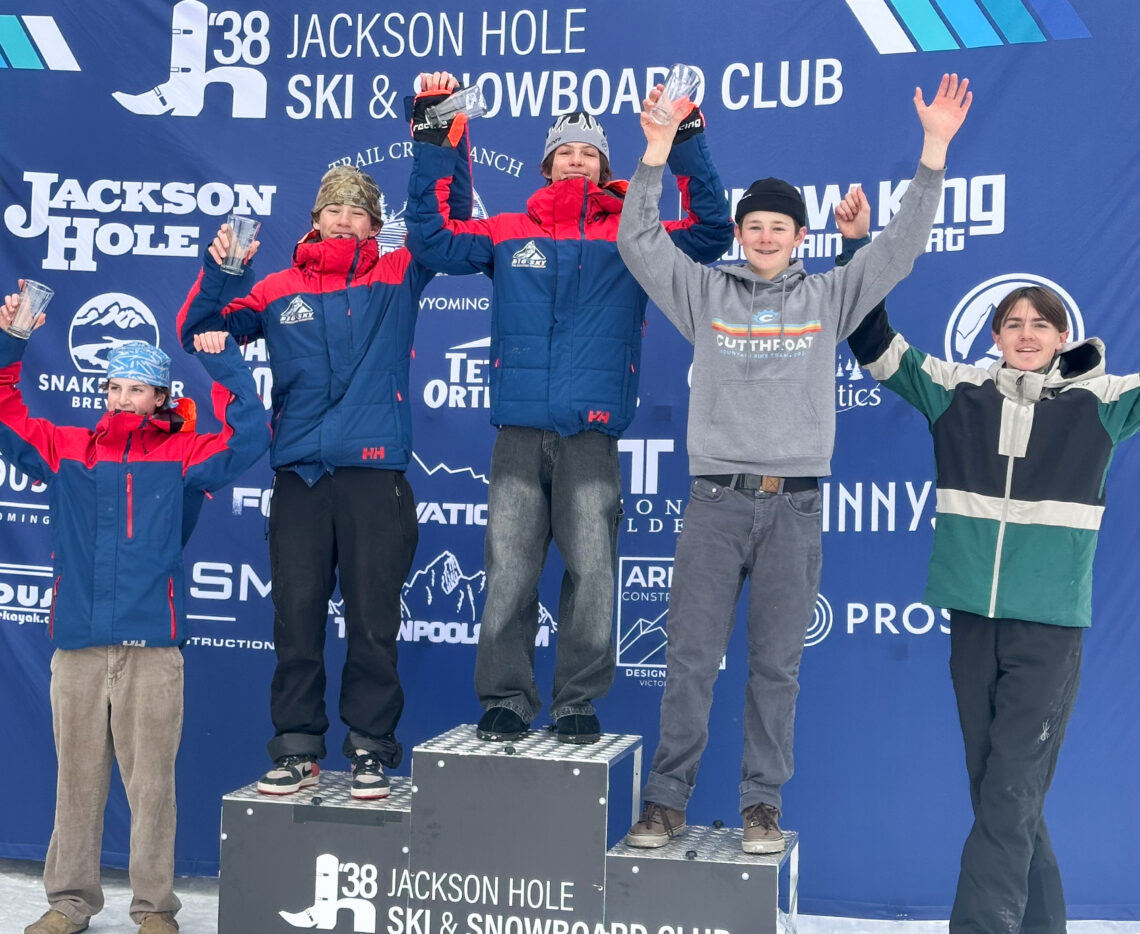Optimism surrounds freeride, Nordic and alpine programs
By Jack Reaney SENIOR EDITOR
The Big Sky Ski Education Foundation is wrapping up its winter 2024-25 season, with a few more weeks of competition for highly qualified athletes.
Program Director Jeremy Ueland said about 250 kids in total from Big Sky, Bozeman, Helena, Billings and beyond participated this season, numbers that reflect a consistent interest in competing year to year. With steady enrollment, coaches can further focus on improving the quality of programs each season and empowering athletes to qualify for regional and national competitions. They continue to make progress.
“We had a lot of kids in the freeride, alpine and Nordic programs make it to regional championships. There’s too many to name,” Ueland said. Finding the balance between training and enjoyment is another priority for the local program.
EBS spoke with coaches to highlight the hardest working, highest achieving and most passionate athletes.
Freeride ‘really stoked’ on the snow year
A superb snow year is the biggest highlight for Freeride Director Wallace Casper, especially after a low-tide winter in 2023-24.
A deep snowpack topped by countless storms has helped attendance, with athletes “really stoked” to continue their training into the final weeks of the ski season, as deep snow translates to safety with lower consequences and softer runouts, allowing kids to push their skills, Casper explained. Last year, coaches practically needed to beg many kids to keep training on a generally sketchy snowpack.
Even after last year, the program gained participants; the team has grown steadily in Casper’s nine years coaching, from roughly 20 kids to nearly 40 this season. The program hopes to reach 60 athletes in the next two years.
“It’s definitely taken off with big support from the mountain, ski club and great coaches we’ve hired over the years,” he said, adding that he’s “super stoked” to continue finding creative ways to keep improving the program. “I definitely love my job, and I want to keep building up the team and the ski club.”
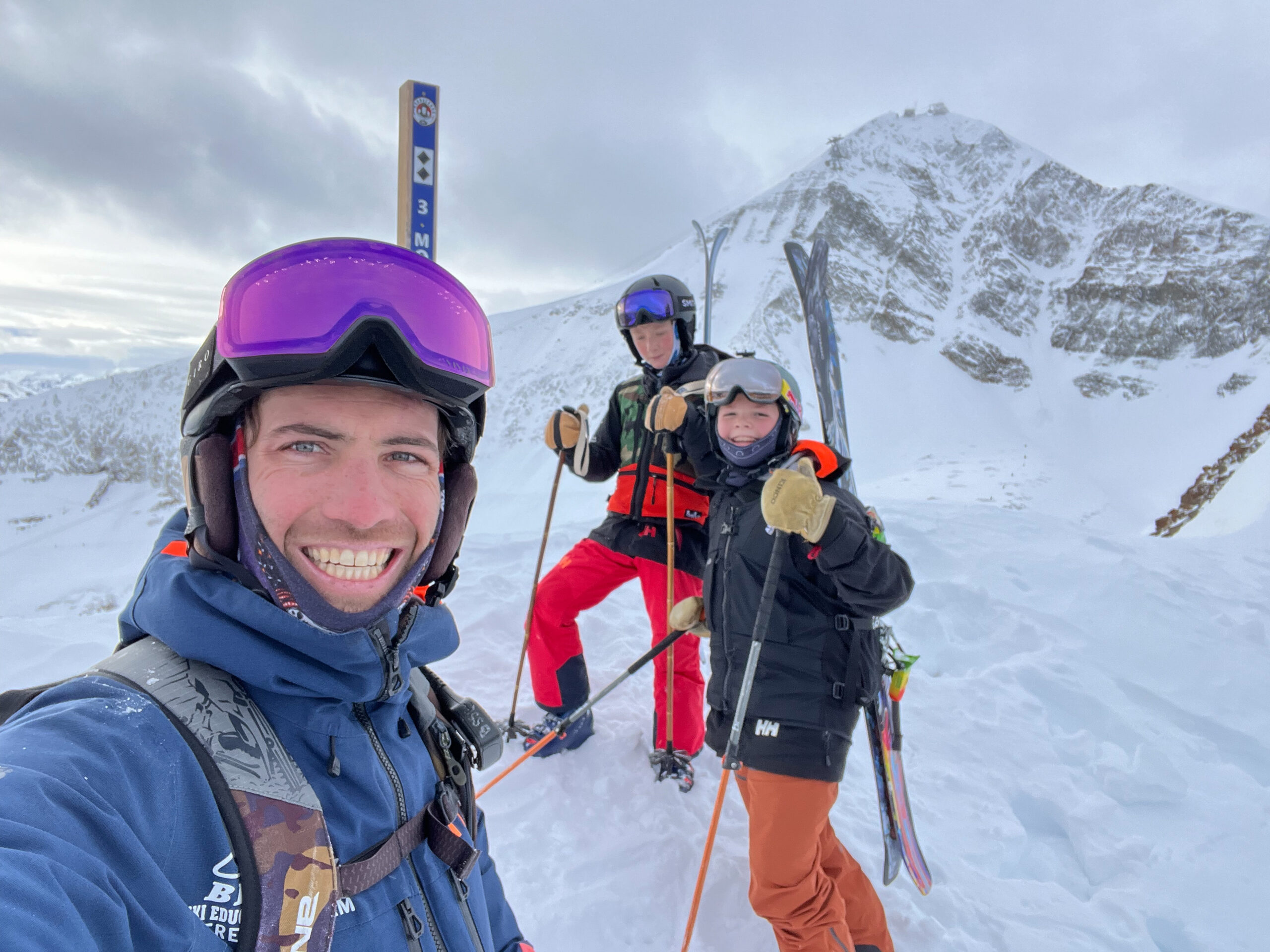
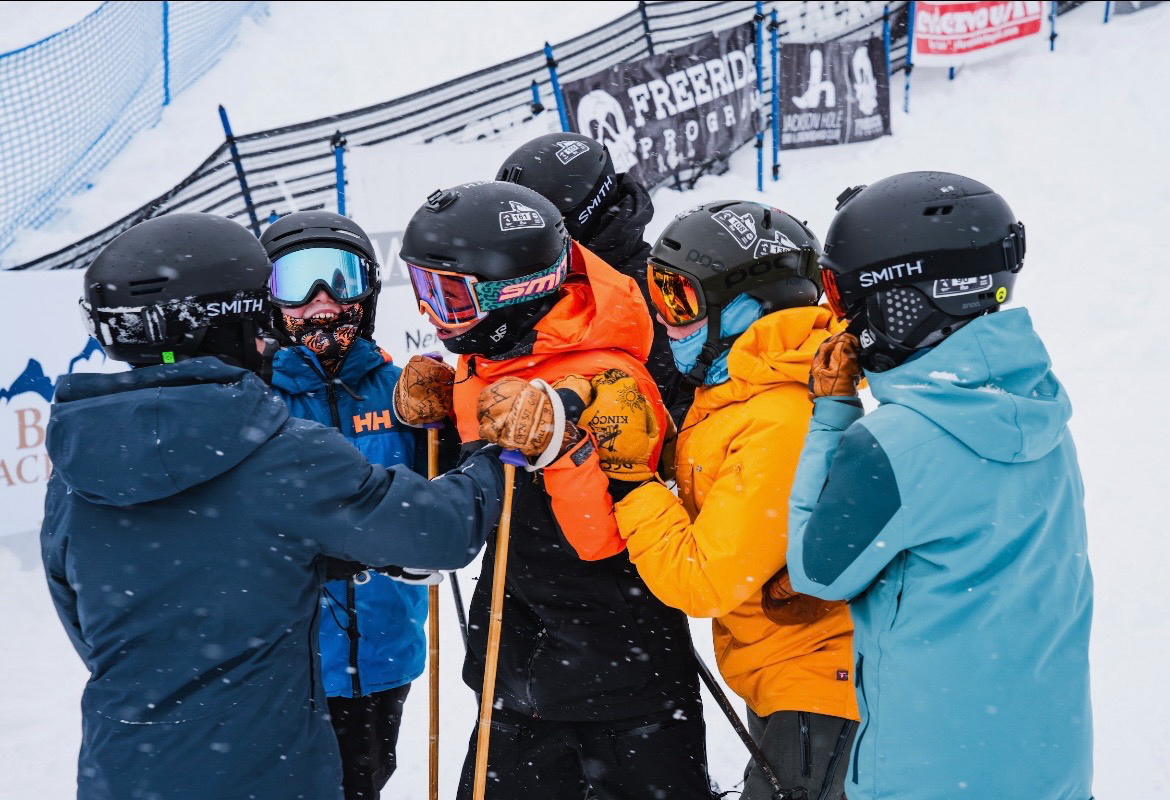
Eleven athletes qualified for the Northern Region Championships in Jackson, Wyoming in late March. Furthermore, five skiers qualified for IFSA Junior Championships at Kirkwood Mountain Resort in California—Casper said less than 10% of athletes from across the U.S., South America and Canada qualify.
“For the size of our team, like 30 kids or so, getting that many kids in is a huge accomplishment for our team for sure,” Casper said, adding that it puts BSSEF on par with programs at significantly larger communities like Whistler in British Columbia, where the freeride team might have 100 athletes. “And it’s because all these kids are Big Sky locals and just shred.”
U19 athletes Mac Bertelson, Henry Flach and Kennedy Cochenour, and U15 athletes Owen Edgar and Olive Wolfe qualified.
Casper rattled off BSSEF athletes with strong seasons, starting with the U12 crew, many of whom graduated from the Big Sky Rippers program under Big Sky Resort’s Mountain Sports department. Casper gave the resort and its Rippers program a “big shoutout.”
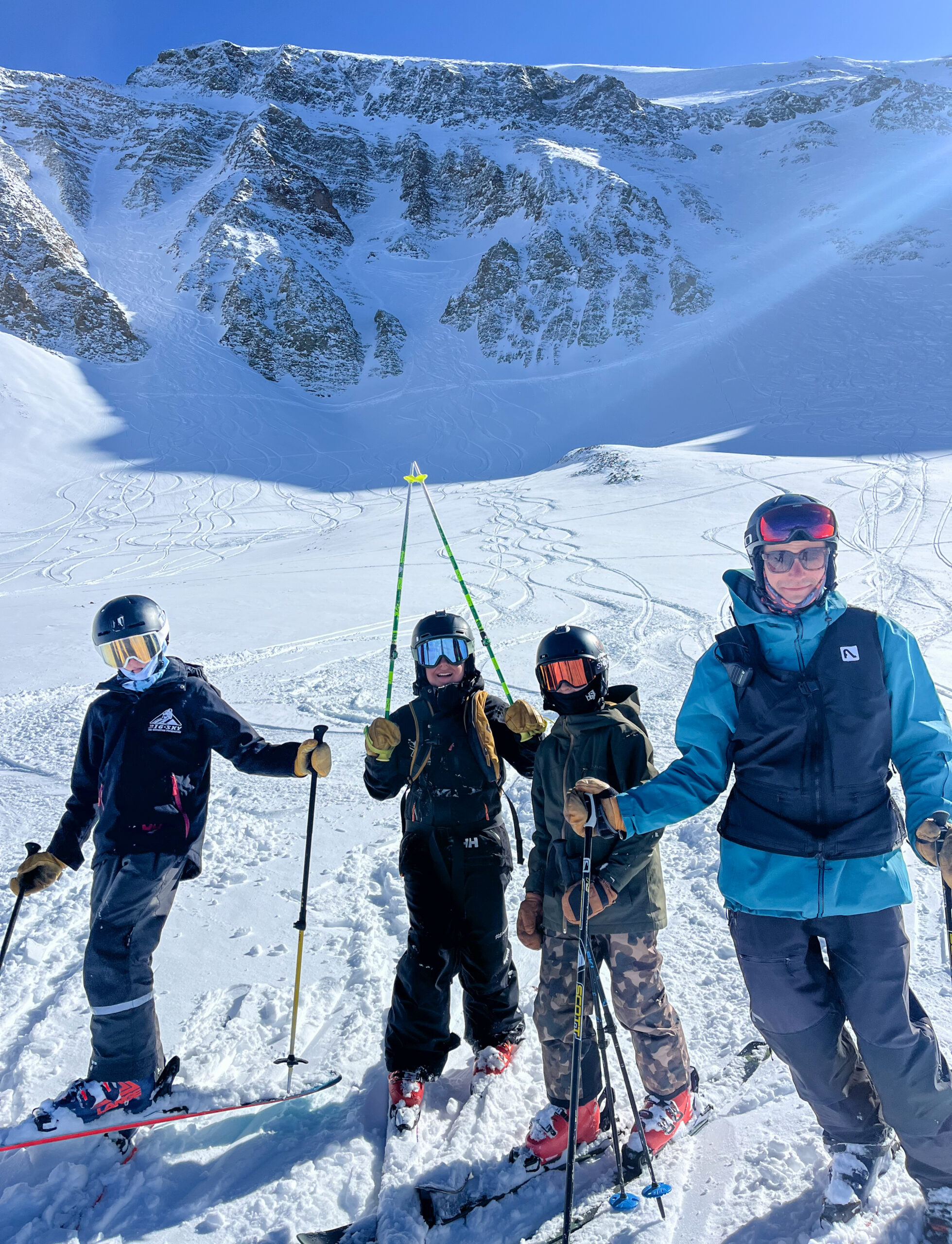
“Every kid we’ve had whose come out of rippers has been totally qualified for freeride… I’ve just been really impressed with the level of athletes we’ve gotten from their crew,” he said.
In particular, Finley Holtz and Frank Daily had standout seasons, including Daily’s recent third-place finish at Snowbowl, his first time on the podium.
“They’ve had really good attitudes, skiing super hard, I don’t think they’ve missed any training all year… Both of those kids have been awesome,” Casper said. He added a shoutout to Hunter Hafemeyor of Bozeman.
At the U15 level, Wolfe and Edgar shined.
Wolfe finished second in a national comp at Snowbird in Utah, and while she often crashed while attempting aggressive lines and “going for gold,” Casper summarized her as fearless beyond her years.
“In competition, she’s pretty courageous with the lines she’s selecting. And she’s pretty confident in herself, and I definitely respect that,” Casper said.
Edgar, a “super motivated” athlete, spent the summer working on new tricks and building on his strong air awareness. He finished in second place at Bridger Bowl, on the podium at Grand Targhee in Wyoming, and sixth place at a late-season national event at Whitefish ahead of junior championships.
“I feel like he just skis 24/7. He skis all day … The kid just doesn’t take a break, he’s showing up everyday ready to get after it,” Casper said.
Casper said coaches love working with Billy Brennick, who won the U15 Bridger comp and finished second at Snowbowl. “He’s just always hyping up other athletes, and he’s always got a smile on his face.”
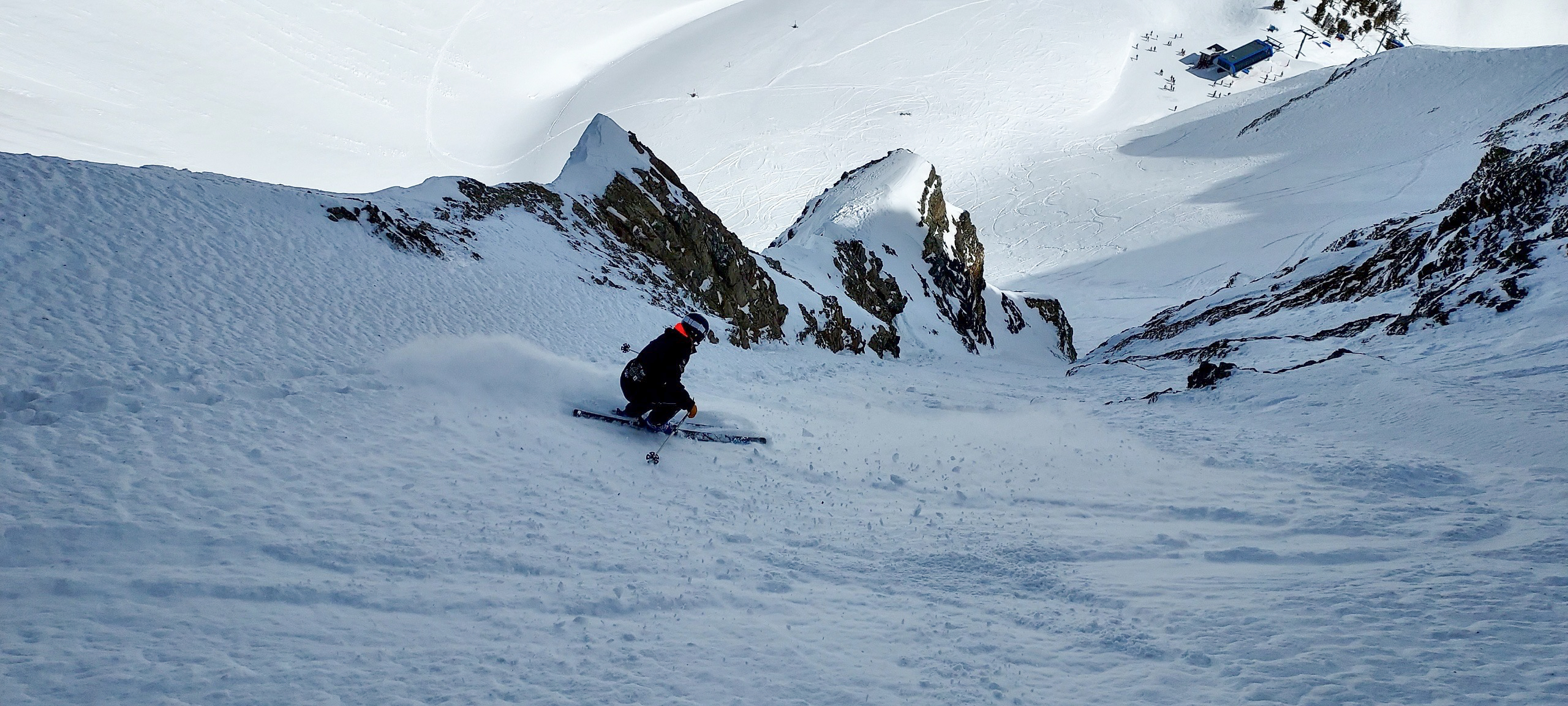
Up in the U19 level, Bertelson and Cochenour were “standout athletes,” despite being the youngest in their field. Bertelson enjoyed a few top-five finishes and a podium this season—Casper said he’s “super dedicated” in his training and straightforward in his goals.
Cochenour, who consistently finished in the top five, won a competition at Bridger Bowl and is gaining confidence while serving as a mentor to her teammates, Casper said. “She’s never too serious, she’s got a good handle on the balance between enjoying the lifestyle and competition… Kennedy’s just kind of the queen of capitalizing on our mission statement, I guess, as a program.”
Fellow U19 Ava Staudt finished in second place at Snowbowl, Casper noted, and he also commended Gallatin High School senior Tate Bulis for his mentorship with the U12 kids, with whom he often skied. He hopes Bulis will consider coaching.
Casper thanked his entire coaching staff, who work extra time without complaint and share their love of the sport with the athletes. He also thanked volunteers on BSSEF’s freeride committee, who help keep the program on track.
The team finished training on Sunday, March 23 wearing costumes for a ski ballet competition in Big Sky.
Nordic program taking balanced approach
BSSEF Nordic Director Anna Fake said the stoke has been high in her program, which is an important indicator of success in an endurance sport that lacks the popularity and adrenaline appeal of alpine skiing, she explained. She’s been happy to see more parents volunteering and supporting athletes at races.
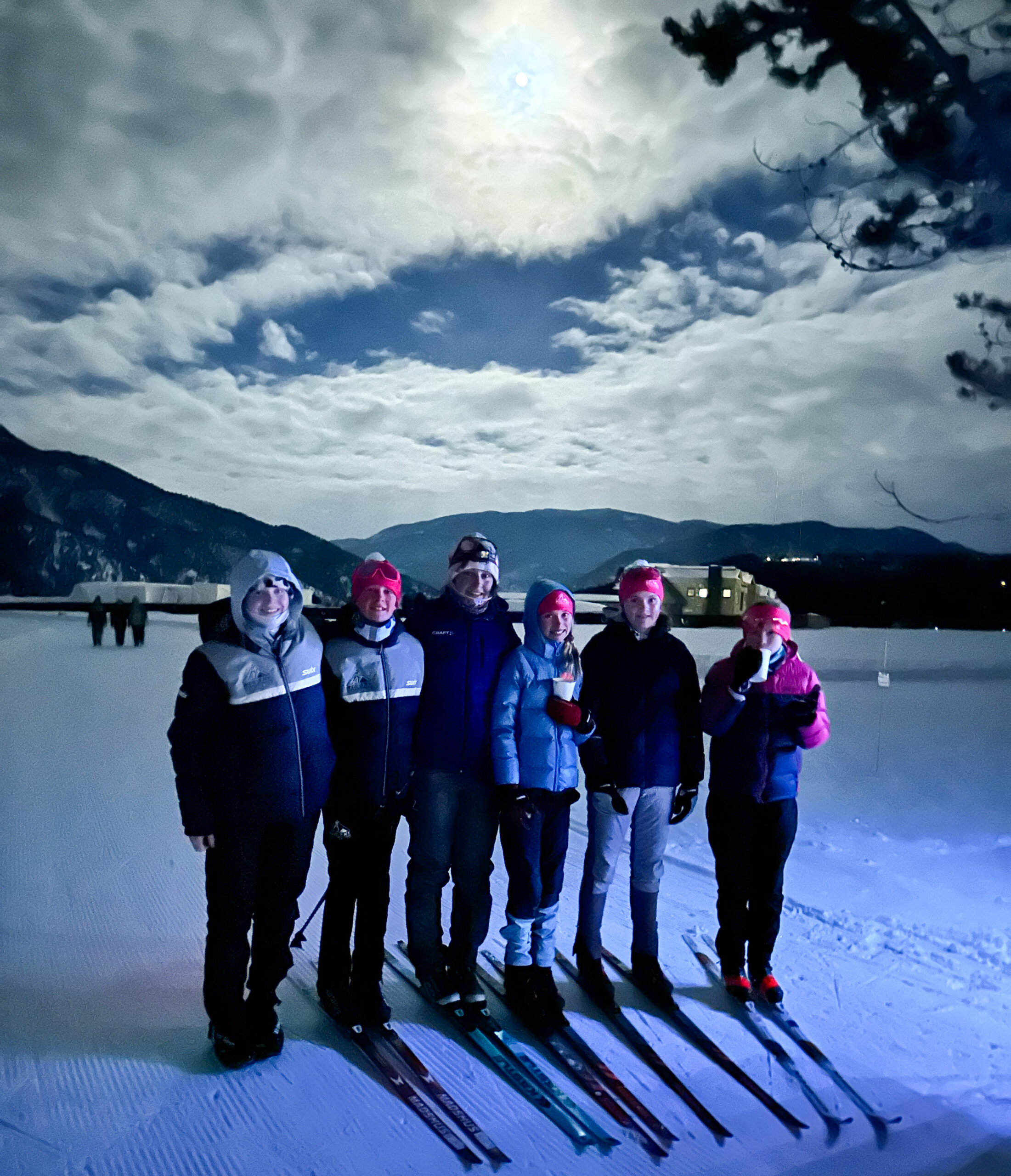
“I feel like our Nordic community is really starting to find its place here in Big Sky,” Fake said.
None of this year’s Nordic athletes qualified for top-tier national events, but the future is bright: athletes eligible for junior nationals finished in the top 10 or top 15 of regional competitions, and the middle-school-aged kids are “super driven” on the devo-plus squad.
“These kids, they showed up… and were like, ready to push it,” Fake said.
From that devo-plus team, she spotlighted Nikki Kamieniarz, one of two boys on devo-plus, for growing his love for the sport this season.
“We just watched him get more and more excited to improve his skills… Really was able to find the silver lining of each race, and how he wants to improve,” Fake said.
She highlighted a few more devo-plus skiers: Reed Loomis had a successful season in the biathlon including a first-place finish at intermountain youth championships in Victor, Idaho, and despite being under 12 years old, qualified for U15 nationals in Bozeman; Zoey Nedved showed a consistent drive to improve, learn from her peers and ski as much as possible; Ty Mittelstaedt redefined what the sport means to him and acted as a “true team player”; and Blake Biggerstaff finished second for U12 girls in the downhill obstacle course at U14 Intermountain Youth Championships.
Among older athletes, Fake said high school sophomore Ursula Blyth took a step back after the sport got too serious for her in recent years, but this season she came in with a fresh mindset, asking constructive questions and helping lead her five teammates on the comp team.
“She was definitely a shining light… She’s been a great role model for our program,” Fake said. Blyth’s goal was to finish in the top 20 at least once this year, and she did that a handful of times.
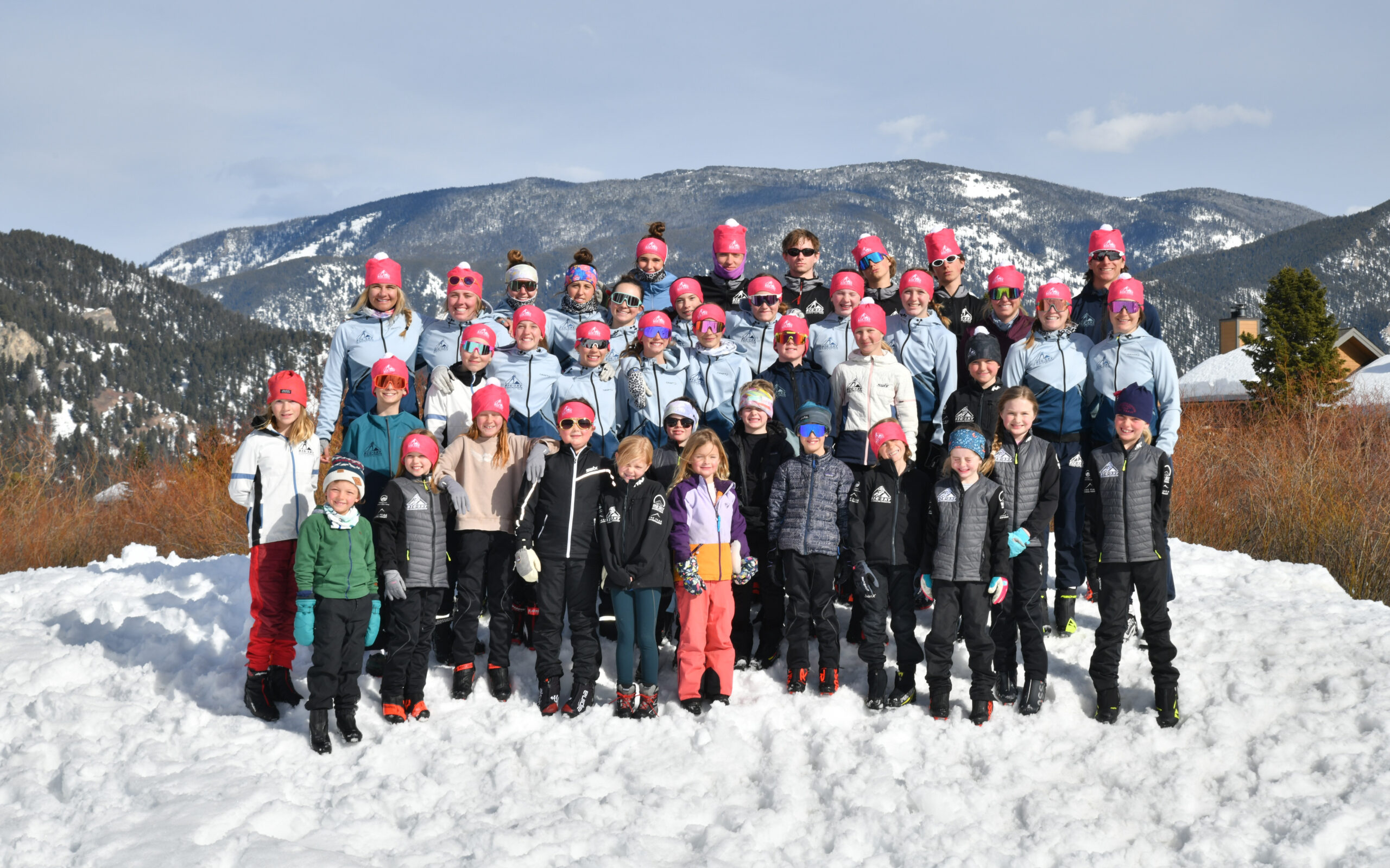
In U16, Thaddeus Davis didn’t quite reach his ambitious goals, but he stayed level-headed and was proud of his performance, including a strong showing in the sprint event.
Fake said most kids start to have their own goals by the end of the season. Coaches let them lead practices, allowing athletes to determine how Nordic skiing fits into their life. The weekday program leaves weekends open for downhill skiing and other passions.
“There’s no real requirement to our program, aside from showing up with a good attitude and the right gear,” Fake said.
At practice, athletes play “skoccer,” or soccer on skis, ultimate frisbee, and capture the flag—all levels of age and competition play together.
In early March, the program held their kicker fundraiser, in which kids hit jumps in Nordic skis to raise money. The athletes totaled 140 laps, raising almost $5,000 on their own.
“It’s pretty fun to compare the level of ability from the beginning of the season to the end,” Fake said, noting that it’s not easy to hit jumps in Nordic skis.
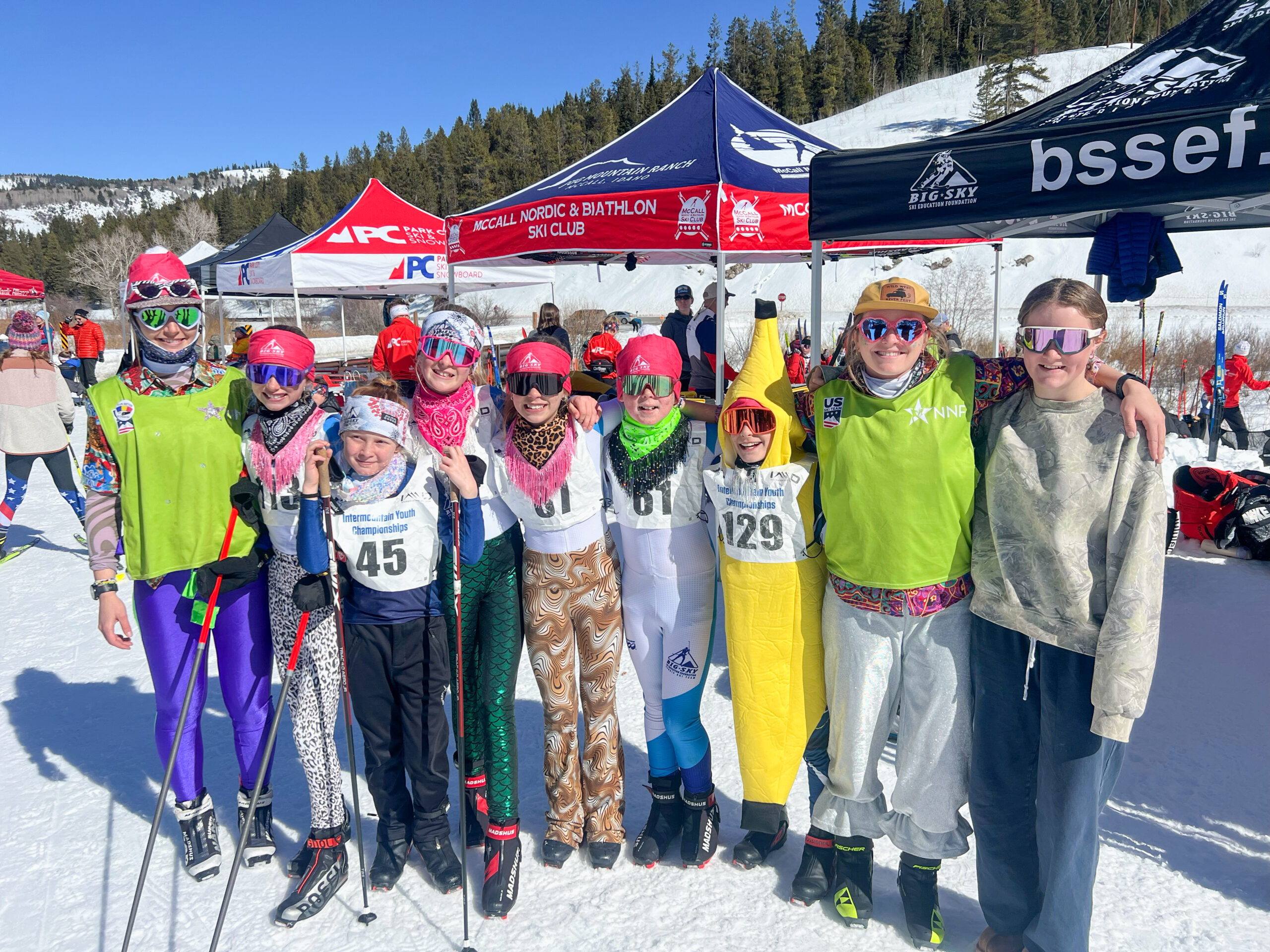
While the team size and dynamic may change year-to-year, the team stuck to its core values “of getting outside and pushing ourselves and seeing how Nordic fits into each and every one of our own personal lives,” Fake explained.
“Our goal and motto stayed the same.”
Alpine program recognized on national, world stage
BSSEF Alpine Junior Development Program coach Aaron Haffey said the race program has surged in recent years, so coaches are sticking with their methods.
“Because it’s clearly been working,” Haffey said. “Each of the past few years, we’ve had more kids qualify for bigger events and do well at those events than years past.”
In 2023, one alpine skier, Skylar Manka, qualified for U18 National Championships. In 2024, two skiers made it: Sophie Davis and Carter Morton. This season, three of 14 FIS-aged skiers qualified: Davis, Morton and Geno DiTullio.
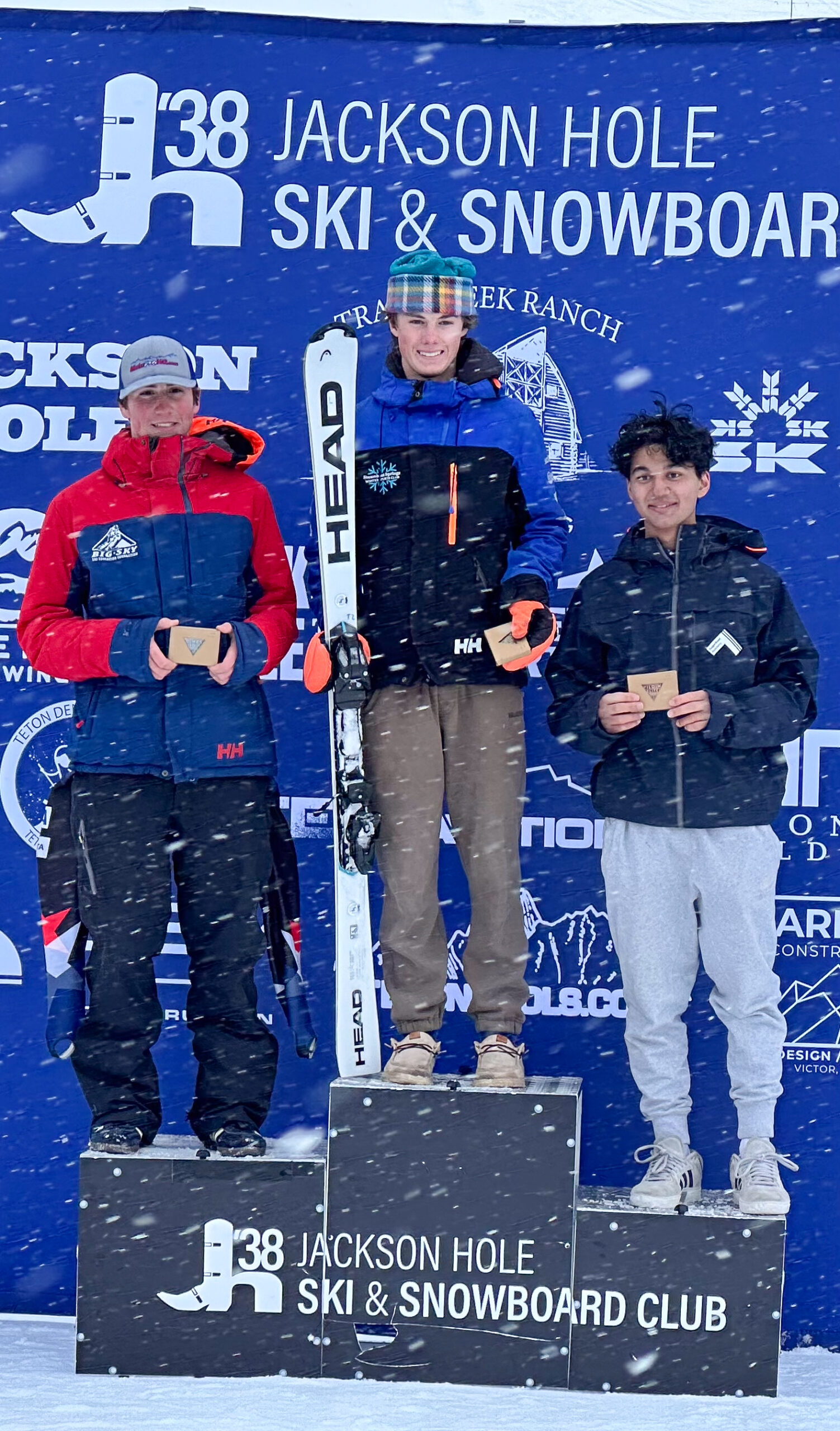
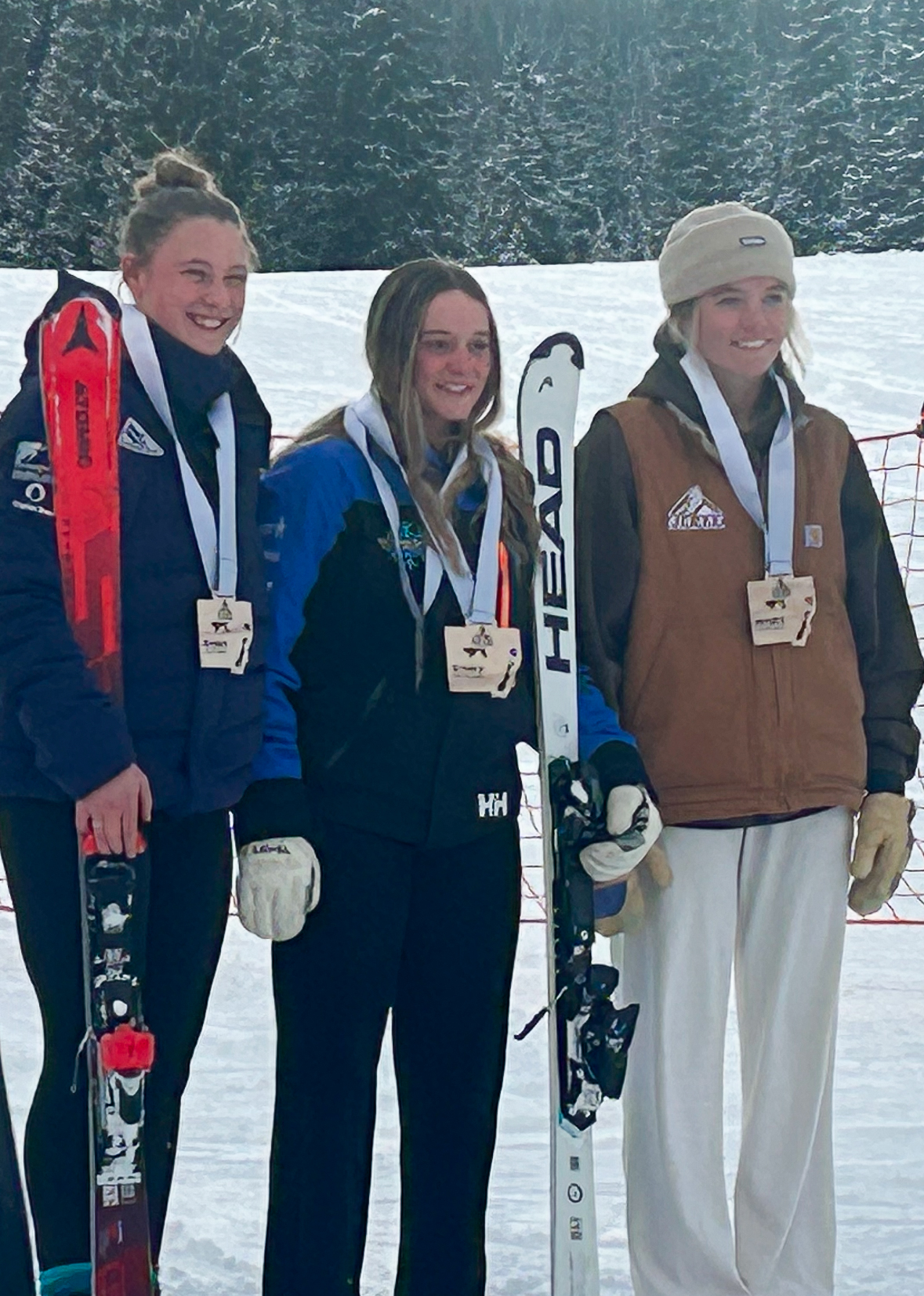
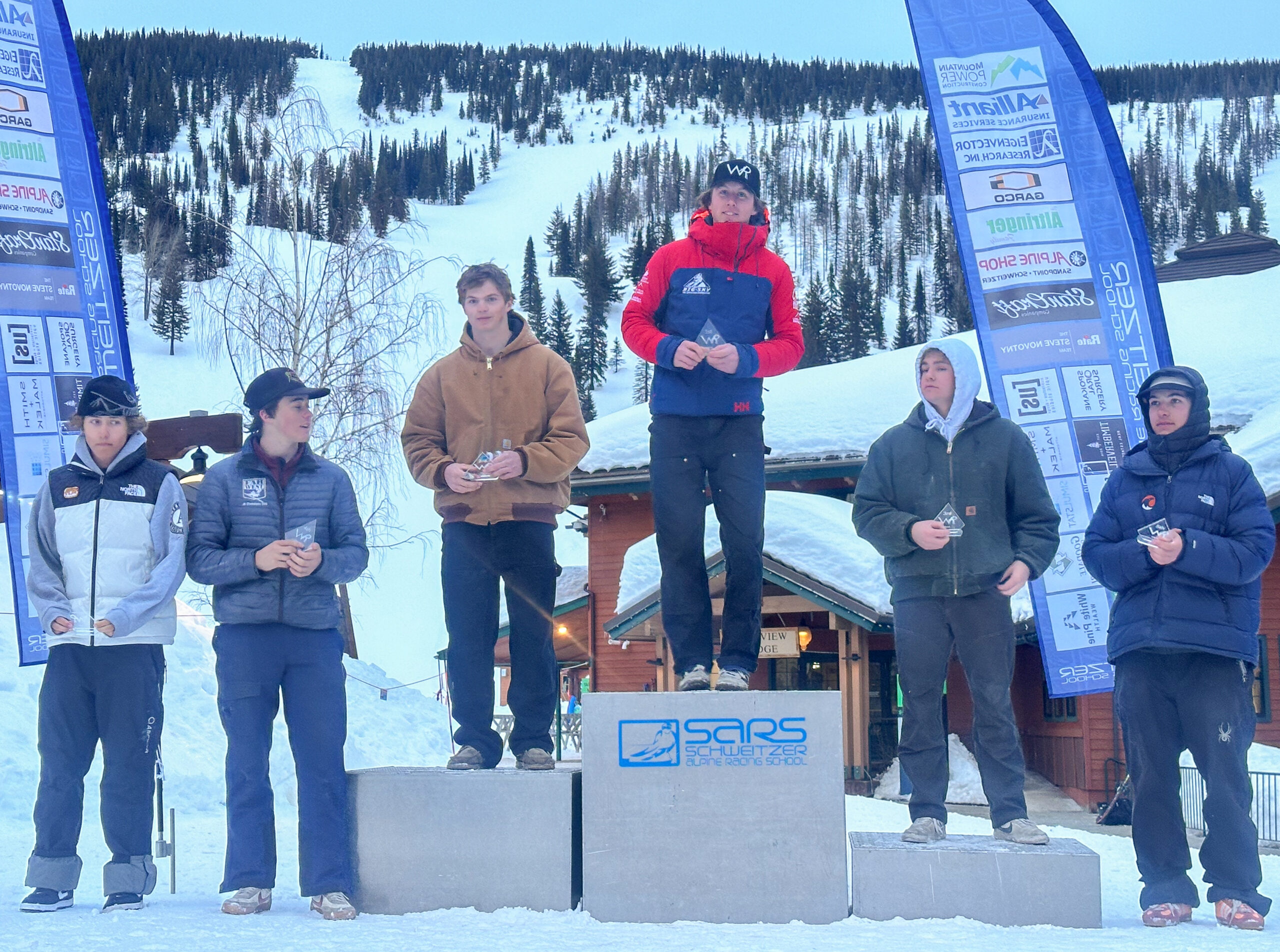
DiTullio is having a “phenomenal” year in U18, climbing the ranks and the podium, Haffey said. DiTullio finished in second place behind Morton at the FIS Elite slalom qualifiers at Snowbird Ski Resort in Utah in early February, and the pair have been pushing each other all season.
For Davis, it was another standout year with multiple podium finishes throughout the Western Region. She qualified for the U.S. National Championships at Vail Mountain in Colorado at the end of March, among top World Cup competitors.
At the U16 level, Ileana Langlas, Camryn Morton and Peyton Wenger qualified for Western Region Championships at Schweitzer Mountain in Idaho. Morton had a “breakthrough” at Schweitzer and nearly qualified for U16 nationals in her first year of eligibility.
Fellow U16 Oliver Svensrud had an outstanding season, qualifying not only for U16 nationals, but also a highly selective race in Alpe Cimbre, Italy—Svensrud is the first BSSEF athlete to qualify for one of these European showcases.
“Which is a pretty big deal. They only took four boys and four girls from the entire United States to that race,” Haffey said. “… He kind of showed that he’s not only one of the best in the country, but in the world right now, for U16. Which is pretty awesome.”
Jeremy Ueland added it’s “a huge standout,” a once-in-25-years occurrence for a Big Sky athlete.
One year younger but right on Svensrud’s heels, Dominic DiTullio also showed great potential this year.
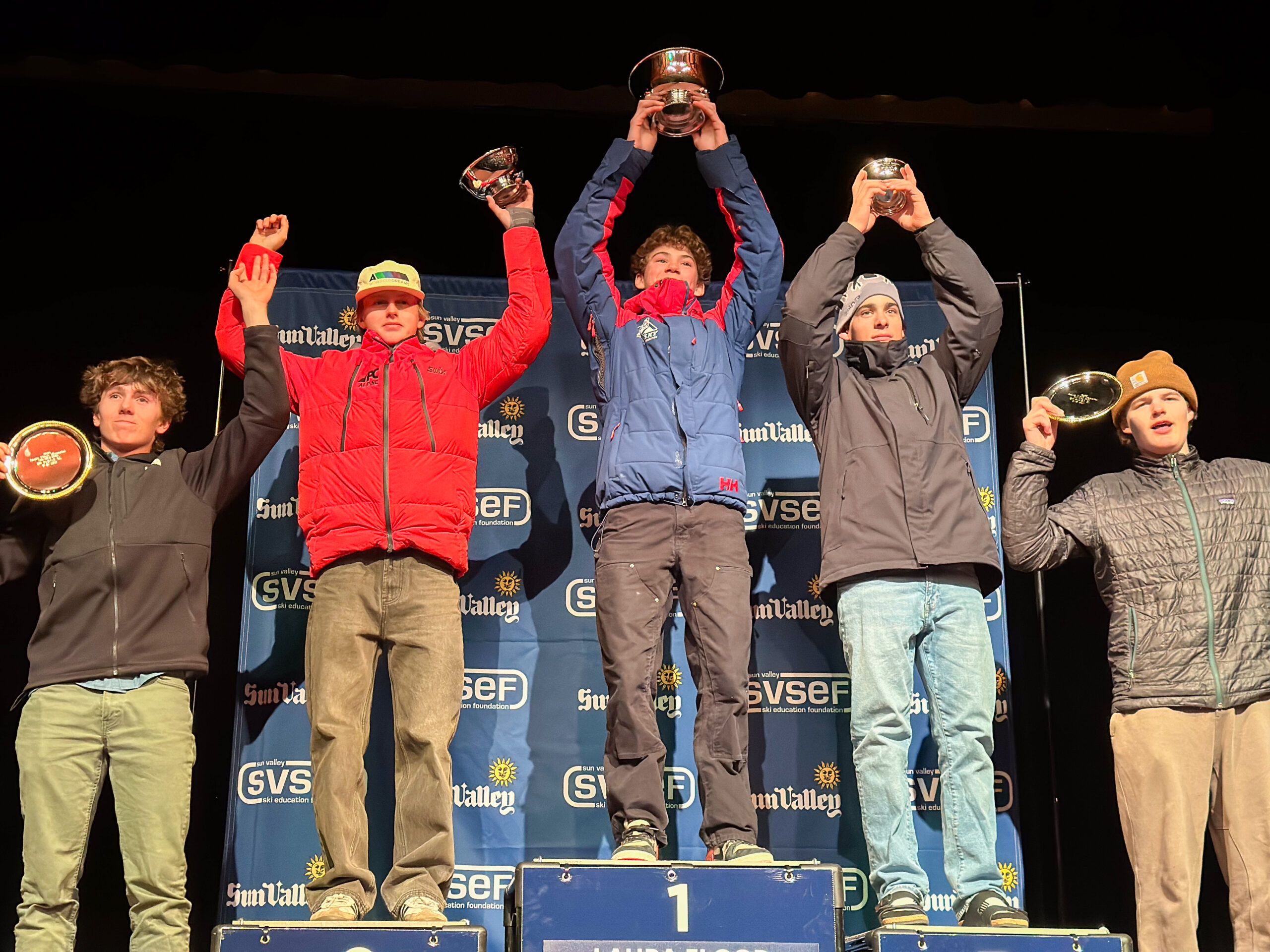
Svensrud and DiTullio both won Intermountain Region races this season, both finishing in top 10 for giant slalom at Western Region Championships. “Two Big Sky guys in the top 10 at regional championships is pretty awesome, for sure,” Haffey said. Both qualified for U16 nationals at Sugarloaf Mountain in Maine.
He also recognized Aurora Kaczmarek-Hill and Weston Swain, who qualified for U14 regional championships at Mammoth Mountain in California.
Overall, Haffey said BSSEF racers are winning against some “pretty big, established programs” nationwide. He’s proud of BSSEF’s training resources, with athletes competing or training six or seven days a week and Big Sky Resort’s Ramcharger 8 enabling high-volume training, including 10 days in November before the resort opens.
Behind the program’s rising success, Haffey added that costs are relatively low compared to BSSEF’s rival clubs. “A lot of these programs that we’re competing with are at least twice, if not three times as much, for tuition fees.”
BSSEF’s jacket sponsors help keep the program affordable, and Ueland said the program will distribute new jackets next season for the next four years. Commitment from jacket sponsors and community foundations is “a huge support to the program that goes a long way” in providing stable, multi-year funding, he said.
Ueland thanked sponsors, parents and volunteers for making another ski season possible, as programs wrap up and approach their final weeks of competition.


